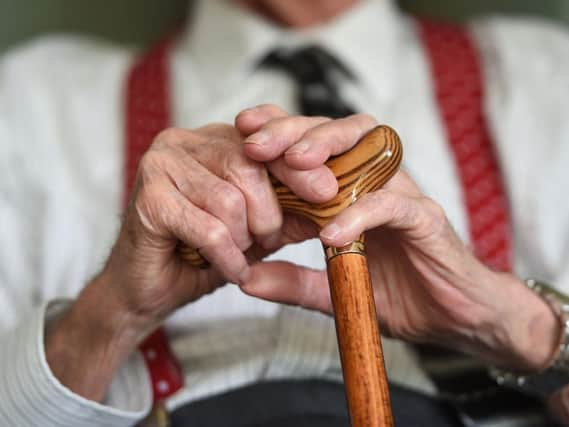27-year life expectancy gap between men living in Blackpool and Chelsea, new report finds


A new study has found Blackpool has some of the worst life expectancy rates in England and figures have also declined.
Imperial College London researchers have found that there is a 27-year gap in life expectancy for a man living in Kensington and Chelsea in London, compared to Blackpool and that from 2002 to 2019, a decline of 0.4 years was recorded for men in a part of the resort, the biggest drop in the country for males.
Advertisement
Hide AdAdvertisement
Hide AdIn comparison, between 2002 and 2019, life expectancy increases of nine years or more were seen for men and women in some parts of central and north London.
The study, which has been published in The Lancet journal, went through and analysed all deaths in England between 2002 and 2019.
Researchers then worked out the life expectancy for different communities, based on the death records across those areas.
Prof Majid Ezzati, from the university, said: “There has always been an impression in the UK that everyone’s health is improving, even if not at the same pace. These data show that longevity has been getting worse for years in large parts of England.
Advertisement
Hide AdAdvertisement
Hide Ad“Declines in life expectancy used to be rare in wealthy countries like the UK, and happened when there were major adversities like wars and pandemics. For such declines to be seen in ‘normal times’ before the pandemic is alarming, and signals ongoing policy failures to tackle poverty and provide adequate social support and health care.”
He added: “The post-COVID ‘Build Back Better’ agenda can create an opportunity for better health, but it currently does not focus on equity and the resources allocated to ‘levelling up’ agenda are too little to address these concerning trends.
“To level up health, the government must make significant investments in people, communities and health services to first reverse this deterioration of health in so many communities.”
Dr Arif Rajpura, director of Public Health at Blackpool Council, said: “As a local authority, we are wholly committed to improving the life chances of our residents.
Advertisement
Hide AdAdvertisement
Hide Ad“There are multiple aspects that contribute towards low life expectancy in both women and men including, drug and alcohol abuse, low wage, poor housing and deprivation, as well as poor educational attainment.
“All of these elements, added to the coronavirus pandemic, have put a significant strain on our health services.
“Over the past decade, significant cuts have been made when it comes to local authority funding, making it hard for us to narrow the inequality gap. Something Professor Chris Whitty stated in a recent report when he said coastal ‘communities have often been overlooked by governments and the ill-health hidden because their outcomes are merged with wealthier inland areas.’
“Since then, we have carefully considered the report and its recommendations to help people in Blackpool lead healthier lives. We have been in close liaison with the Government and shared our experience to help deliver a better outcome for our town.
Advertisement
Hide AdAdvertisement
Hide Ad“We are constantly taking steps to drive economic regeneration, creating more jobs and making Blackpool a better place to live and work.
“Some of these include project ADDER, a scheme that tackles addiction by bringing police and treatment services together, which aims to reduce drug-related deaths; My Blackpool Home programme helps to improve the standard of homes and neighbourhoods; While programmes such as Blackpool Headstart works towards building community resilience.
“We are also working alongside the NHS and other multiple partners such as Empowerment and Fulfilling Lives to deliver sustained changes to improve residents’ quality of life.”
